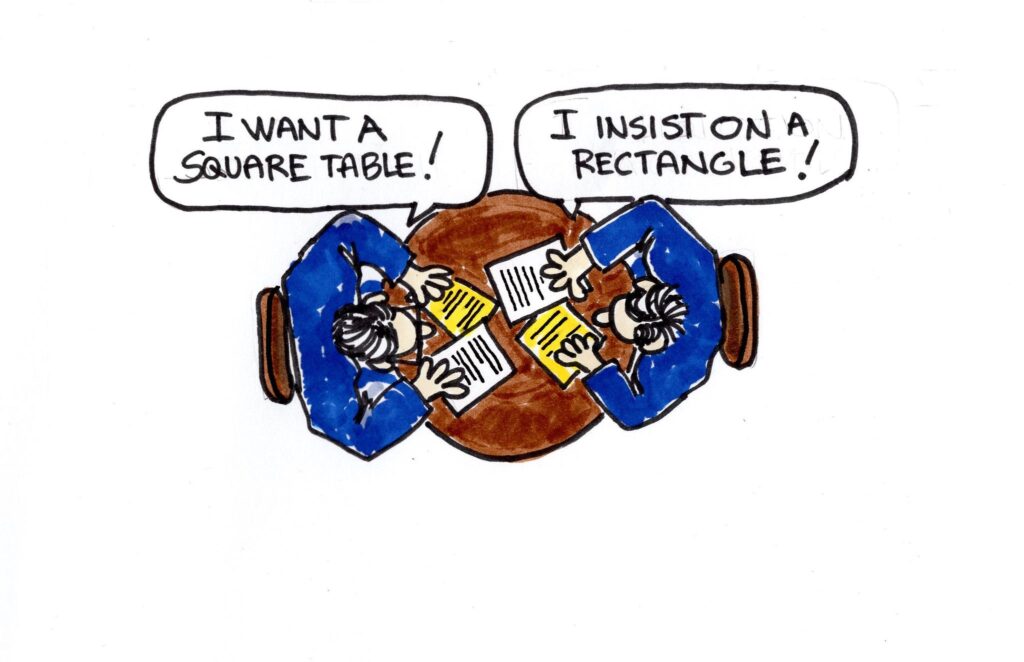As longtime Writing Boots readers know, I am committed to never offering anything truly useful here, lest I begin resenting my readers, as moochers. But I guess I don’t feel bad about letting my communicator correspondent Larry Crittendon offer a potentially helpful analysis of the current contract negotiations between U.S. automotive companies and the United Auto Workers. And also, all other contract negotiations by all other employers and all other unions, past and future. The artwork is Larry’s too. Thanks for the wisdom, Larry. —DM
***
Although I don’t have a role or stake in the negotiations, I’m following the contract talks between the United Auto Workers and the Big Three automakers. I don’t have any inside sources, so I can read only the public coverage, including the usual posturing and pronouncements from both parties.
And I’m recalling the days when I had a front row seat during negotiations between a public utility (my employer at the time) and the IBEW local. I was assigned to the management negotiating team, and tasked with producing the daily updates to managers. This was long before the days of texts and emails, so I wrote my updates and recorded them on a voice mail machine. Managers from around the company could call the “secret” number and listen to my carefully worded summaries of progress and potholes for the day. The summaries were carefully worded because we knew that the union negotiating team probably had access to the number, and listened carefully to every word.
My tenure included a couple of major contract negotiations that lasted several weeks, and I learned a few things that still apply:
Public announcements don’t equal private positions. Each side must maintain a tough public persona. The management team needs to appear tough to company leadership, and the union reps need to be tough in the eyes of their members. Communications from either camp should tell of tense moments and incremental gains, and should not mention funny exchanges or ice cream breaks.
Don’t wrap up too early. Nothing would be more unsettling to the masses than for the negotiations to conclude well before the deadline. Both sides would assume that they didn’t have the best possible agreement from their team, and would wonder if a better deal was left unattended on the table.
Don’t assume that any public conflict between negotiating teams translates into conflict between salaried and union employees. In fact, they sometimes root for each other. When I was handling communications, I knew that my colleagues on the salaried side of the company were quietly hoping for a generous wage increase for union employees because we knew that the company would be obligated to match the increase over on the salaried side. And the union reps would use any increase in salaried compensation as leverage in the next round of contract talks.
I hope that the UAW and the automakers wrestle right up to the deadline and produce a contract that the membership will support. I hope that union membership will grow, and that the companies will prosper. As noted, I don’t have a stake in the negotiations, but I do have a 14-year-old truck that I might need to replace one of these years, and I hope to have some good options.

Leave a Reply